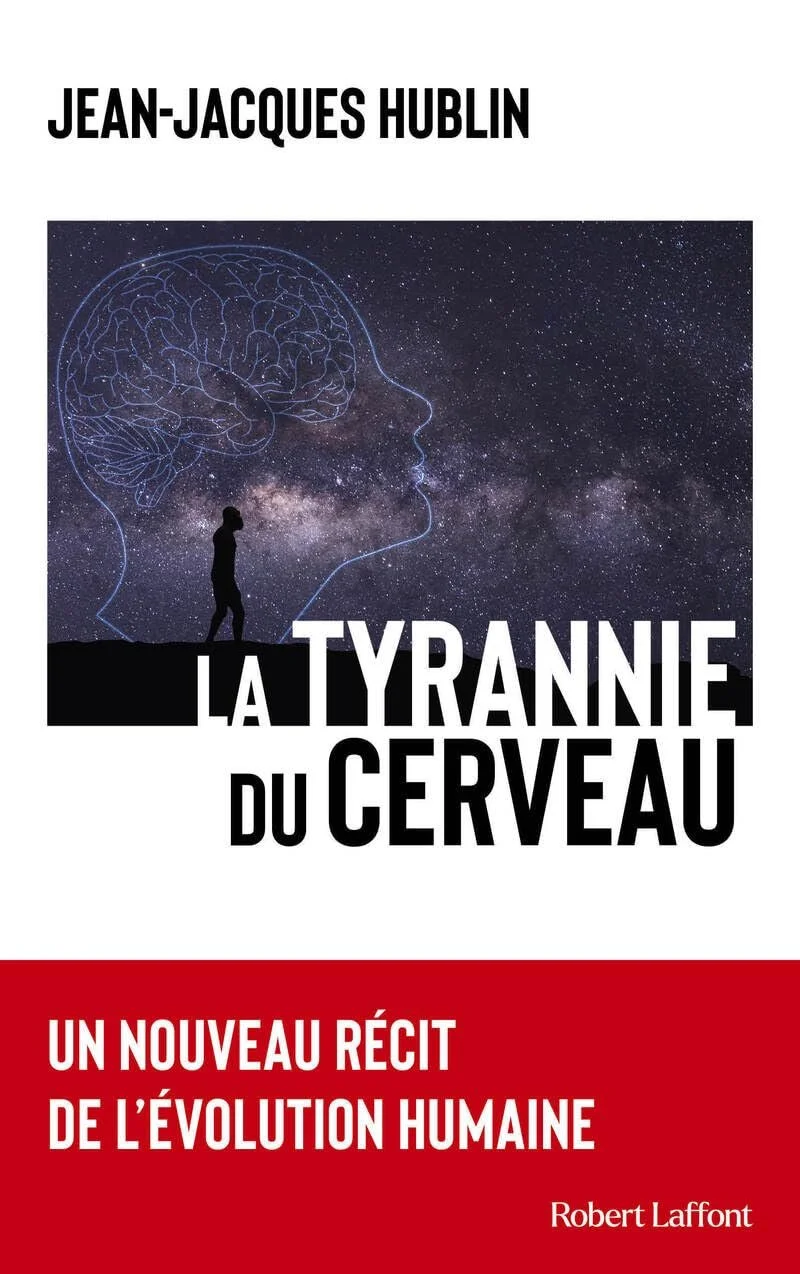the tyranny of the brain:
a new history of human evolution
jean-jacques hublin
(Robert laffont, 320 pages, 2024)
√ A new take on the history of humankind by one of France’s foremost paleo-anthropologists.
√ An original history of our ancestors, through the prism of the brain, the energy-guzzling organ that has shaped the human species.
√ Essential read for anyone wondering about the origins and future of humanity.
In this original approach to the prehistory of mankind, renowned paleo-anthropologist Jean-Jacques Hublin explains the evolution of human physiology and behavior by focusing on the incessant quest for energy required by our human brain. Humans are indeed “the only species that has become capable of extracting almost unlimited energy from its environment, and not just in the form of food”. This voracious appetite is rooted in the energy requirements of the organ that most differentiates us from other great apes: Our big brain which is about three times larger than that of our closest cousin, the chimpanzee.
Under Hublin’s guidance, we retrace the footsteps of our ancient ancestors: how our species managed to spread across the planet, adapting to almost any climate and modifying its environment like no other, precipitating the extinction of numerous species and all other hominids, such as the Neanderthals and Denisovans since our separation from chimpanzees eight million years ago.
A success that modern man owes, paradoxically, to his handicaps, as Jean-Jacques Hublin recounts. Equipped with an overly large brain, immature and terribly energy-hungry, with few natural protections, and slow to acquire autonomy, Homo Sapiens survived thanks to natural selection, which gave him a series of evolutionary advantages: high-performance digestive machinery, an unprecedented reproductive success among vertebrates, the ability to communicate and accumulate knowledge from generation to generation, to form societies. To in the end triumph at the expense of all others…
An essential read, The Tyranny of the Brain offers a learned yet accessible perspective on the origins and the future of humanity.
Jean-Jacques Hublin is a paleo-anthropologist and a professor at the Collège de France where he is the successor of Yves Coppens. He is renowned for his groundbreaking research throughout the scientific community and has been awarded the 2023 prestigious Balzan Award for his discovery of the first Homo Sapiens in Africa as well as for his talents to explain complex scientific discoveries to the general public.

